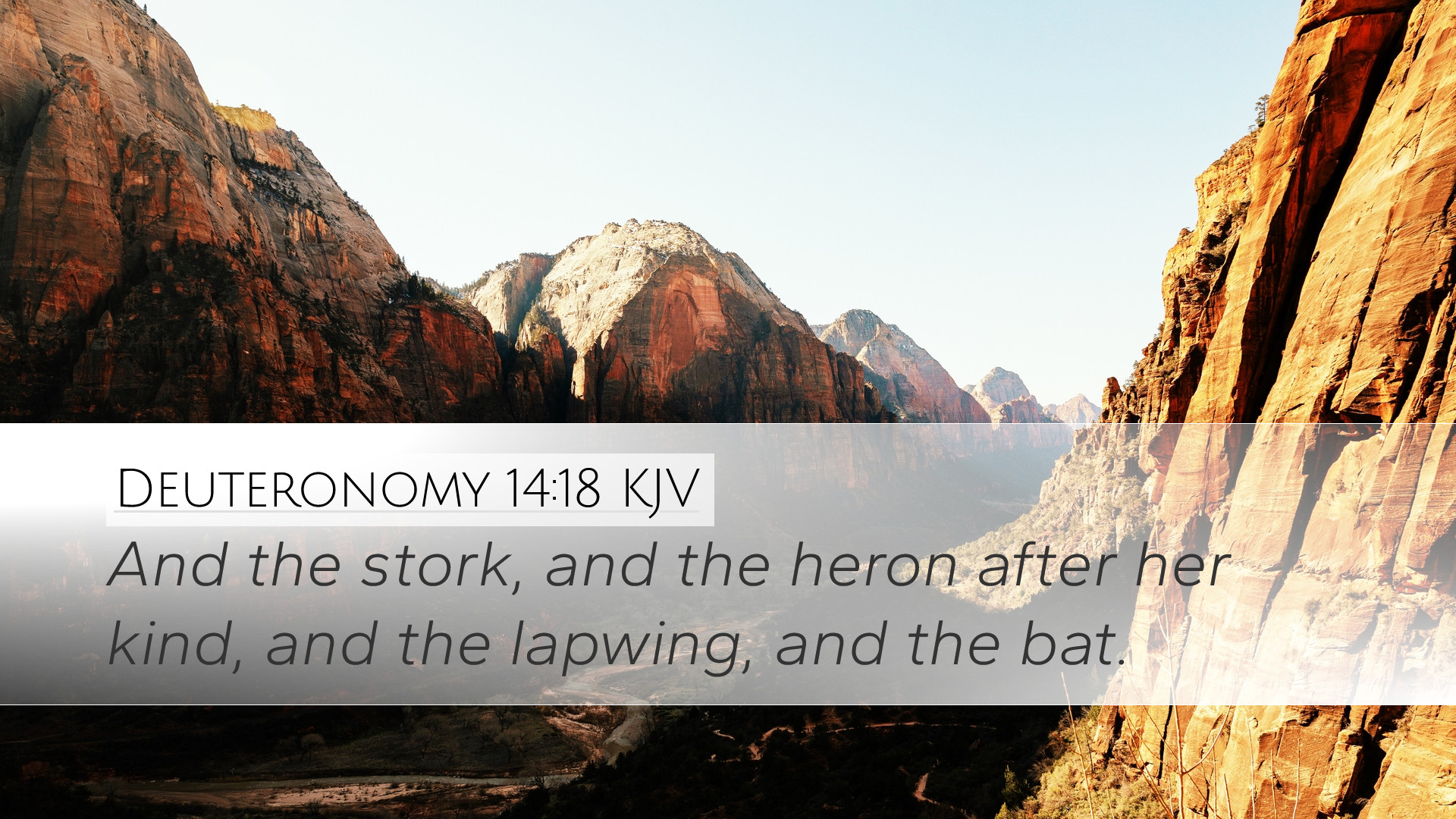Deuteronomy 14:18 Commentary
Verse: "But the swan, and the pelican, and the gier eagle, and the owl, and the cormorant," (Deuteronomy 14:18)
Introduction
The dietary laws given in Deuteronomy 14 serve to outline what animals the Israelites were permitted to eat. Deuteronomy 14:18 highlights specific unclean birds, which provide insight into ancient Hebrew perspectives on purity, holiness, and the significance of dietary restrictions in the covenant community.
Historical Context
The Israelites were commanded to differentiate between clean and unclean animals, a practice that permeated their cultural and spiritual identity. These laws were integral not only for health reasons but also as a means for establishing a distinct identity among the nations surrounding them.
Significance of Dietary Laws
- Obedience to God: Following these dietary laws was an act of obedience, demonstrating reverence for God's holiness.
- Identity and Community: The laws fostered a sense of unity and distinctiveness among the Israelites, reinforcing their unique relationship with God.
- Symbolism: Clean and unclean classifications often reflect deeper spiritual truths, emphasizing the necessity of moral purity.
Commentary Insights
Matthew Henry’s Commentary
Matthew Henry emphasizes the importance of understanding these laws in relation to God’s holiness. He notes that the distinction between clean and unclean animals signifies a deeper spiritual separation from evil and uncleanliness. By abstaining from such creatures, the Israelites were reminded of their commitment to a holy lifestyle, aligning their practices with God’s standard of righteousness.
Albert Barnes’ Commentary
Albert Barnes provides historical context regarding the specific birds mentioned in this verse. He explains that the swan, pelican, gier eagle, owl, and cormorant were considered unclean due to associations with scavenging and death. Barnes highlights how this designation served both practical and moral purposes, reinforcing the idea that consumption ought to reflect purity and honor toward God.
Adam Clarke’s Commentary
Adam Clarke offers a meticulous analysis of the classification of birds within the text. He points to the diverse natural characteristics of these creatures, likening their behaviors to spiritual lessons. Clarke suggests that the awareness of the dietary restrictions nurtured a constant mindfulness among the Israelites regarding their choices and the overarching authority of divine law in their lives.
Theological Implications
The implications of Deuteronomy 14:18 extend beyond dietary regulations. The symbolic nature of what is deemed clean and unclean allows for a broader theological reflection.
Holiness and Separation
- Imitation of God: The quest for holiness is a reflection of the character of God, who is altogether pure.
- Modern Application: Today's believers are also called to discern between behaviors and practices that align with divine prompts versus those that detract from spiritual purity.
The Role of Obedience
Just as it was crucial for the Israelites to adhere to these dietary laws, contemporary believers are reminded of the value of obedience. God desires to mold His people, shaping lives marked by holiness through commitment to His commandments.
Conclusion
Deuteronomy 14:18 serves as a reminder of God's desire for His people to maintain purity in their choices. The dietary laws, while perhaps initially seeming restrictive, were foundational in shaping a holy community that reflected God’s nature. For pastors, students, theologians, and scholars, this verse offers profound insights into the nature of obedience, separation from evil, and the quest for holiness in both ancient and contemporary contexts.


